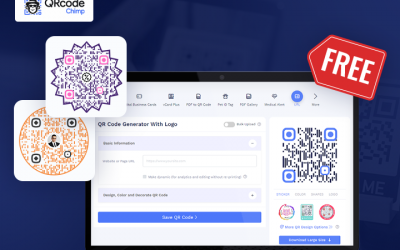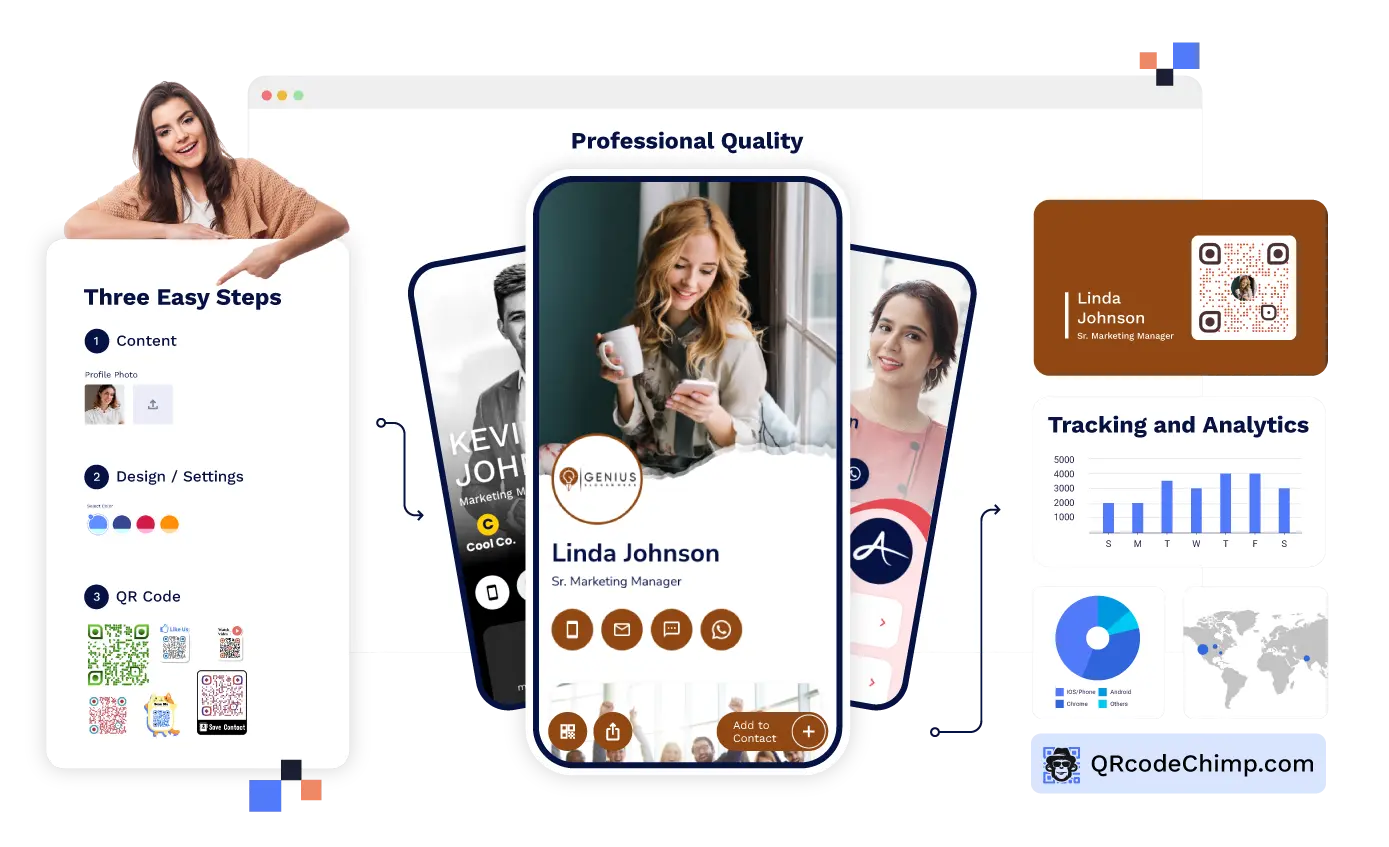The debate between digital business cards and physical business cards has become more pronounced in today’s digital era. Moreover, both options have their advantages, catering to different preferences and business scenarios. This article explores the evolution of business cards, examining the benefits of digital and physical formats. The goal is to assist professionals in making informed decisions based on their specific networking needs.
The rise of digital business cards

Digital business cards mark a significant shift in how professionals exchange contact information. However, in an era driven by technology, digital cards, often in the form of QR codes or mobile apps, provide a convenient and efficient means of sharing details. The ease of a quick scan or tap streamlines networking processes, besides making it particularly advantageous in fast-paced environments like conferences or large gatherings. Additionally, digital cards offer eco-friendly benefits by reducing paper usage. Also aligns with the growing emphasis on sustainability. Their dynamic nature allows for constant updates, eventually ensuring recipients have access to the latest information. As technology evolves, the rise of digital business cards also reflects a broader trend toward streamlined, environmentally conscious, and tech-savvy professional practices.
Benefits of digital business cards
In an era marked by the seamless integration of technology into our daily professional lives, digital business cards have emerged as invaluable tools, likewise offering myriad benefits beyond their traditional counterparts’ capabilities.
Some of the benefits of digital business cards are mentioned below.
Convenience of sharing
Digital business cards facilitate instant information exchange primarily through QR codes, reducing reliance on physical materials. This further ensures professionals can swiftly share their details without needing cumbersome paper-based processes, which indeed streamlines networking interactions.
Customizable
Digital business cards are highly customizable. Customization lets you design a card that perfectly suits your brand. Which simultaneously helps your brand stand out from the rest. Personalizing the digital business card creates a long-lasting impression on your clients.
Eco-Friendly nature
Beyond convenience, digital business cards contribute to environmental sustainability by eliminating the need for paper production. This eco-friendly approach aligns with the growing emphasis on green business practices, allowing professionals to reduce their ecological footprint while maintaining a modern and tech-savvy image.
Dynamic Content
Digital business cards go beyond the static nature of traditional cards by incorporating dynamic content. This may include links to portfolios, social media profiles, or updated contact information, offering recipients a more engaging and interactive experience and ensuring that the shared information is always current.
Cost Savings
Adopting digital business cards explicitly eliminates the expenses associated with printing and designing traditional cards. This cost-effective solution eventually enables professionals and businesses to redirect resources toward other strategic initiatives, likewise making it an economically prudent choice.
Analytics and Tracking
Digital business card proves to be especially helpful as you can also track their performance. QRCodeChimp provides analytics and tracking features, allowing professionals to understand how recipients engage with their information. This valuable data empowers users to refine their networking strategies based on recipient interactions, fostering more targeted and effective follow-up actions.
Global Accessibility
Digital business cards transcend geographical barriers, facilitating easy sharing and access on a global scale. This global accessibility ensures that professionals can connect with individuals across different regions and time zones, broadening their networking horizons and fostering international collaborations.
Click on the link to learn more about creating a Digital business card for free!
The traditional charm of physical business cards

Physical business cards have a special charm due to their tangible nature, providing a personal touch that digital alternatives lack. In our tech-driven world, exchanging physical cards remains a timeless ritual, creating a memorable connection between professionals. There are still many people who like to exchange physical cards. Although they offer a limited space for content, people still prefer to exchange physical cards.
Benefits of physical business cards
Physical business cards bridge the gap between virtual and real-world interactions, offering a tangible representation of a professional connection. Beyond being a means of contact exchange, they serve as physical reminders, fostering a sense of familiarity and trust.
Easy exchange
At busy networking events, handing out physical business cards is a quick and handy way to exchange contact details. The actual card becomes a tangible reminder of the meeting, helping people remember and follow up on connections made amid all the event buzz.
Tangible in nature
The physical nature of business cards engages the sense of touch, providing users a unique and memorable interaction. This tangible exchange creates a physical connection that digital alternatives often struggle to replicate, leaving a lasting imprint on the recipient.
Versatility
Physical business cards are universally compatible and not reliant on specific technologies or devices. This versatility ensures that professionals can share their information with a broad audience, transcending any potential barriers related to digital platforms or technology disparities.
Always accessible
Unlike digital alternatives that may require specific devices or an internet connection, physical business cards are always accessible. They can be carried in wallets or cardholders, ensuring that professionals can share their information anytime, regardless of technological constraints.
No technical barrires
Physical business cards eliminate any technical barriers associated with digital solutions. They require no special skills or devices for access, making them inclusive and accessible to individuals of all technological proficiency levels. This simplicity ensures that professionals can connect seamlessly with a diverse range of contacts.
Immediate Availability
Physical business cards are instantly available for distribution. There’s no need for recipients to download an app or navigate through digital processes. This immediacy makes the exchange of information quick and straightforward, especially in spontaneous or impromptu networking situations.
Which is the right choice- Digital business cards or Physical business cards?
Choosing between digital and physical business cards involves considering your audience, industry norms, and networking environments accordingly. Think about your contacts’ tech-savviness, the settings where you network, and the environmental impact. Consider budget constraints, personal branding, and adaptability to different situations. By weighing these factors, you can choose to suit your networking needs.
Conclusion
In conclusion, both digital and physical business cards have their advantages. Digital business cards are more eco-friendly, cost-effective, and easier to share. They also offer more opportunities for customization, tracking, and analysis. On the other hand, physical business cards are more traditional, tangible, memorable, and easily accessible. They can also create a stronger professional connection and leave a lasting impression. Ultimately, the choice between digital and physical business cards depends on your professional preferences, business goals, and target audience. It is necessary to consider both options and choose the one that best suits your needs.







